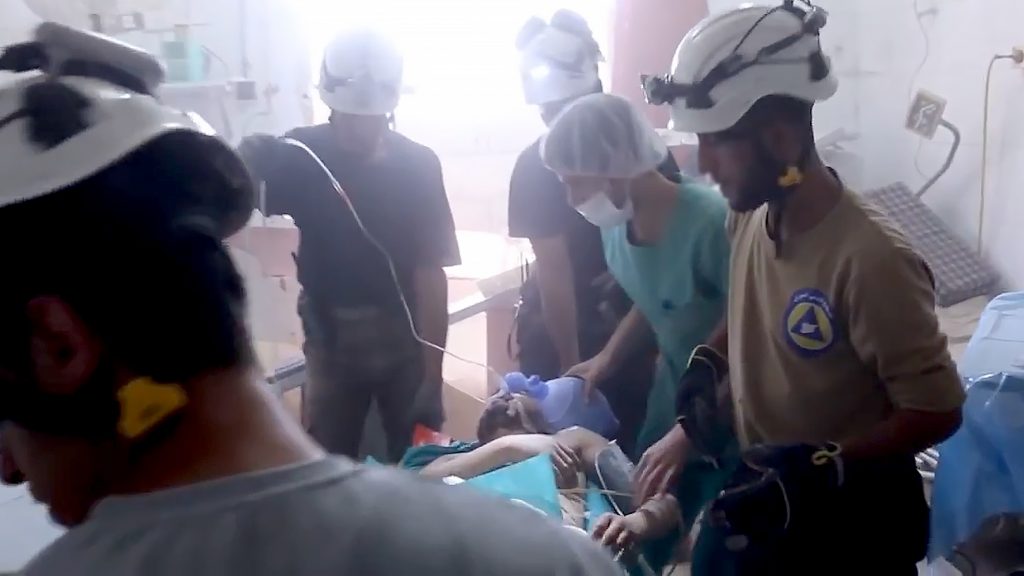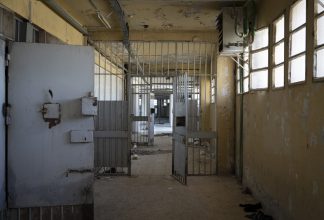Arrest Warrants Issued for Syria’s President al-Assad and Three of His Associates for Complicity in War Crimes and Crimes Against Humanity

French criminal investigative judges call for the arrest of Syria’s President Bashar al-Assad and three associates over the use of banned chemical weapons against civilians in Syria. The arrest warrants follow a criminal investigation into two chemical weapons attacks in the town of Douma and the district of Eastern Ghouta in August 2013, which killed more than 1,000 people.
“We hope that the arrest warrants will send a message loud and clear to the survivors, and everyone affected by the attacks and other atrocity crimes in Syria, that the world has not forgotten them and that the fight for justice will continue”, says Aida Samani, Senior Legal Adviser at Civil Rights Defenders.
The decision to issue arrest warrants against several high-ranking representatives of the Syrian regime follows a multi-year criminal investigation. In addition to Bashar al-Assad, President of the Syrian Arab Republic and head of the armed forces, and Maher al-Assad, de facto leader of the 4th Armored Division, warrants have been issued against General Ghassan Abbas, Director of Branch 450 of the Syrian Scientific Studies and Research Center (SSRC), and General Bassam al-Hassan, Presidential Advisor for Strategic Affairs and liaison officer between the Presidential Palace and the SSRC. The arrest warrants refer to the legal qualifications of complicity in crimes against humanity and war crimes.
The investigation in France was opened in response to a criminal complaint based on the testimony of survivors of the August 2013 attacks, filed in March 2021 by the Syrian Center for Media and Freedom of Expression (SCM) and by Syrian victims. The complaint was supported by the Syrian Archive and the Open Society Justice Initiative, which together with Civil Rights Defenders have joined the investigation as civil parties, as well as members of the Association of the Victims of Chemical Weapons (AVCW).
Extensive evidence
In addition to extensive first-hand testimonies from numerous victims, the criminal complaint, which takes the form of a civil party application, contained a thorough analysis of the Syrian military chains of command, the Syrian government’s chemical weapons program, and hundreds of items of documentary evidence, including photos and videos.
“With these arrest warrants, France is taking a firm stand that the horrific crimes that happened ten years ago cannot and will not be left unaccounted for. We see France, and hopefully, other countries soon, taking the strong evidence that we have gathered over years and finally demanding criminal responsibility from the highest-level officials”, says Hadi al Khatib, founder of Syrian Archive and Managing Director of the project’s host organisation, Mnemonic.
A historic moment
The issuance of the arrest warrants marks a historic moment and is an important signal not only to the Syrian regime, but to all states, that the ban on chemical weapons cannot be violated.
“This is the first time a sitting head of state has been the subject of an arrest warrant in another country for war crimes and crimes against humanity. This is a historic moment — with this case, France has an opportunity to establish the principle that there is no immunity for the most serious international crimes, even at the highest level”, says Steve Kostas, Senior Managing Lawyer at the Open Society Justice Initiative.
“The French judiciary’s issuance of arrest warrants against the head of state, Bashar al-Assad, and his associates constitutes a historic judicial precedent. It is a new victory for the victims, their families, and the survivors and a step on the path to justice and sustainable peace in Syria”, says lawyer Mazen Darwish, founder and director general of the Syrian Center for Media and Freedom of Expression (SCM).
Mazen Darwish adds, “The investigative judges in France have had their say regarding this type of crime; no one is immune. And we expect the French authorities to respect the victims’ suffering and rights along with the decision of the French judiciary.”
Similar complaints filed in Germany and Sweden
The principle of extraterritorial jurisdiction can be used by courts to investigate and prosecute international atrocity crimes committed on foreign territory under certain circumstances. In October 2020, SCM, Syrian Archive, and the Open Justice Initiative filed a similar complaint before the Office of the German Federal Public Prosecutor, on the Syrian government’s sarin attacks on al Ghouta in 2013 and on Khan Shaykhun in 2017.
A further criminal complaint was filed by the three NGOs in April 2021 in Sweden, together with Civil Rights Defenders, against high-ranking members of the Assad regime for war crimes and crimes against humanity. Together, the French, German and Swedish complaints include evidence from the most detailed investigations carried out into these attacks to date.
Chemical weapons attacks in Syria
Since 2011, more than 200 chemical weapons attacks have been reported in Syria. UN investigators, together with the Organization for the Prohibition of Chemical Weapons (OPCW) have determined that the Assad regime is responsible for several of the attacks. Toxic gases such as sarin, chlorine and mustard gas have been used in the attacks on the civilian population. The attacks resulted in thousands being killed and injured. Being exposed to sarin gas is life-threatening, painful and often leads to long-term severe injuries in those who survive.
More information
- Would you like to know more about the arrest warrants issued in France? Read our Q&A in English here, in French here.
- Read the organisations’ joint press release in English here, and in French here.
- For summaries of the criminal complaints, read more here and here.
Contact
For more information, please contact Civil Rights Defenders at press@crd.org or +46 (0)76 576 27 62.


